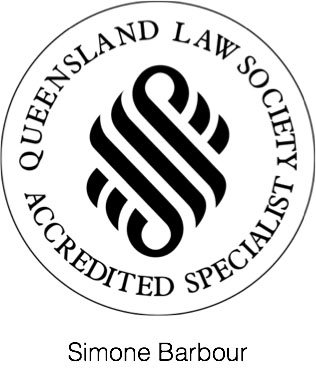
What is Domestic Violence
Domestic violence means behaviour by one person towards another person within a family relationship that—
(a) is physically or sexually abusive; or
(b) is emotionally or psychologically abusive; or
(c) is economically abusive; or
(d) is threatening; or
(e) is coercive; or
(f) in any other way controls or dominates the second person and causes the second person to fear for the second person’s safety or wellbeing or that of someone else.
Frequently Asked Questions
If you are a victim of Domestic Violence, you can take steps to protect yourself
If you or your children are at immediate risk of harm you should call the police. The police can assist you apply for a Domestic Violence Protection Order if they are called out to an incident and they are concerned for your safety or the safety of your children.
If the police cannot assist you, then you may have to take action to protect yourself by applying for a Domestic Violence Protection Order. There are many options associated with this Application that you may not have considered and you need to carefully decide what information you include in this Application if you want it to succeed so we recommend you obtain legal advice before you take this step.
In addition to legal support, there are other community support services available for victims of domestic violence. You can call DV Connect – Womensline on 1800 811 811 24 hours a day, 7 days a week or you can visit their website:
How is an Application for a Domestic Violence Protection Order prepared?
You have to complete a Court Application form which we can provide to you or you can obtain from your local Magistrates Court.
That Court Application needs to set out all important events involving Domestic Violence, including those that may have happened earlier in the relationship.
The main Order that a Court can make is to Order that the other party be of good behaviour and not commit Domestic Violence against you in the future. However you can ask the Court to make additional provisions to protect you, your children or other members of your family.
You may request Orders that the other party have no contact with you, not approach you or that require them to leave the home. If your children are at risk then they may be able to be protected as well.
These are important considerations and need to be dealt with BEFORE you file an Application. We can assess what conditions we consider a Court should make and the information you need to include in your Application to improve the probability the Court will make the conditions you have requested.
We can prepare the document for you or provide you with advice on what to include.
What happens after an Application is lodged?
Your Application is lodged with your local Magistrates Court and you are allocated a day to attend Court.
The Queensland Police Service then takes that document and are required to locate the other party and give them a copy. However in some urgent circumstances a Court may allow you to present your case to the Magistrate before the other party is given notice of your Application.
Do we have to go to Court?
You will usually need to attend the first Court date unless there has been an agreement reached with the other party in which case your lawyer may attend on your behalf.
We can help assist you to negotiate an agreement and we can also represent you at that first Court date so that you do not need to say anything on your own behalf.
At the first Court date, the Magistrate will encourage both parties to decide if you can agree about a Protection Order being put in place and the terms. Many cases do reach a resolution at this first Court date.
If no agreement is reached then the Magistrate may put in place a Temporary Protection Order, make Orders directing parties to file Affidavits (a document you attest to be the truth) and then allocate your case a date for a Final Hearing on another day.
The Final Hearing of a Protection Order Application involves both parties giving evidence in the witness box and the Magistrate making a final decision.
We can assist you to prepare the necessary documents and represent you at that Final Hearing.
What does being served with an Application for a Protection Order mean?
If you have been served with an Application then it means that someone is alleging that you have committed an act of domestic violence against them. This Application is filed on the basis that someone has requested that Orders are made by the Court against you for their protection.
Once you receive the Application you should read it carefully. It will set out the nature of allegations which are being made against you and the Orders being sought by the Applicant. The Application will indicate the date on which it is to be heard before a Magistrates Court.
The Application will specify whether a Temporary Protection Order is being sought. This is an Order which can be granted at the first Court date by the Magistrate and will remain in place until a final hearing of the matter. A Temporary Order will be made if the Court considers that the allegations are serious enough to warrant a Temporary Order being made.
You should consult with a lawyer as soon as possible if you have been served with an Application for a Protection Order.
Can I defend it?
If you deny the allegations which have been made against you in an Application for a Protection Order and you wish to challenge those allegations you can contest the proceedings.
We can advise you and appear at Court on your behalf.
If you do not attend the Court date an Order can be made in your absence.
Will this harm my reputation?
Domestic Violence Protection proceedings take place in a closed Court so no one else can be present when your case is heard.
A Protection Order does not need to be disclosed to your employer in most cases and is a private matter.
However the details of the Protection Order can be disclosed to certain necessary organisations such as your child’s child care or school if your children are included on an Order.
A Protection Order is not a criminal conviction but a breach of an Order is a criminal offence
What if my children are named on it?
You can contest your children being included in a Protection Order. We can advise you about your prospects of success in contesting their inclusion. We can also assist you in negotiating with the other party or their lawyer about this matter before it goes to Court.
If the children are named on a Protection Order then you will need to have a written agreement around when you see the children and we can assist you with those parenting negotiations.
How can I get help if I think I have a problem?
You can call DV Connect – Mensline on 1800 600 636 between 9am and midnight on any day or you can visit their website:
You can call Lifeline on 131 114, 24 hours a day, 7 days a week
Do we have to go to Court?
You are required to attend the first Court date unless there has been an agreement reached with the other party in which case your lawyer may attend on your behalf.
You should seek legal advice before you make any decision not to attend the first Court date as Orders can be made in your absence if you do not attend.


